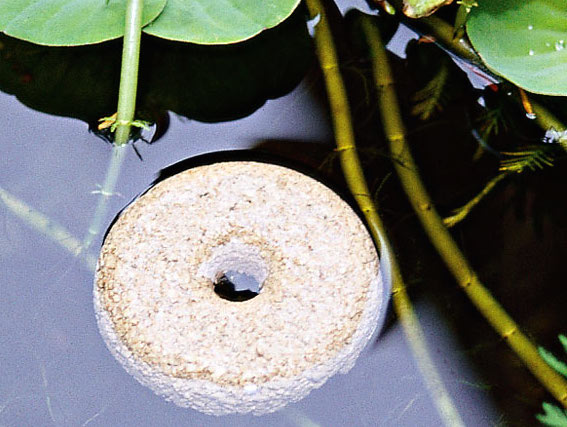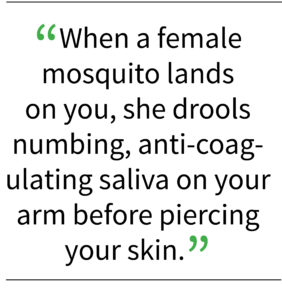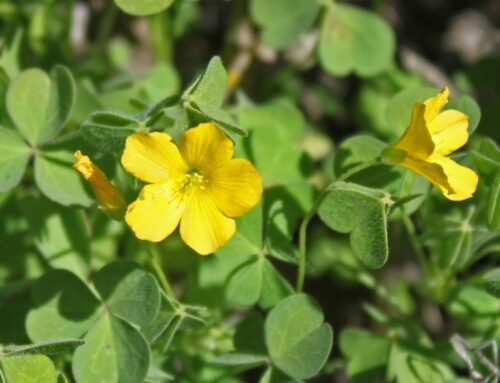Water sources can be used by mosquitoes for egg-laying

A single mosquito dunk lasts for 30 days and can treat 100 square feet of water.
By Kate Russell

Kate Russell
Mosquito bites are no fun. They itch like crazy, no matter how much you scratch (which you shouldn’t). Worse than that, mosquitoes can carry disease.
Each year, nearly 700 million people around the world become infected with mosquito borne diseases and more than one million of those people die. In the U.S, more than 3,000 people a year die from mosquito borne diseases, such as Zika and West Nile, as well as malaria, dengue, yellow fever, chikungunya, and St. Louis encephalitis. COVID-19 is not believed to be carried by mosquitoes, but canine heartworm is. Male and female mosquitoes both eat nectar, but female mosquitoes need blood for their eggs.
When a female mosquito lands on you, she drools numbing, anti-coagulating saliva on your arm before piercing your skin. That’s why you often don’t feel the bite until it’s too late. And that saliva can contain deadly viruses. What’s a gardener to do?
Make your Morgan Hill landscape unappealing to mosquitoes by getting rid of standing water. Mosquitoes lay their eggs in as little as one tablespoon. Check rain gutters, planter saucers, old tire swings, etc. Eliminating all those potential egg-laying locations goes a long way toward reducing mosquitoes in the garden.
 What about ponds, fountains, rain barrels, birdbaths, and pet water bowls? These water sources can also be used by mosquitoes for egg-laying, but adding one simple ingredient eliminates the problem: mosquito dunks. Mosquito dunks are made out of dried bacteria that mosquito larvae love to eat. The bacteria kill the mosquito larva, but are safe for people, pets, livestock, wildlife and plants.
What about ponds, fountains, rain barrels, birdbaths, and pet water bowls? These water sources can also be used by mosquitoes for egg-laying, but adding one simple ingredient eliminates the problem: mosquito dunks. Mosquito dunks are made out of dried bacteria that mosquito larvae love to eat. The bacteria kill the mosquito larva, but are safe for people, pets, livestock, wildlife and plants.
Each donut-shaped dunk can be broken into smaller pieces, depending on the area being treated. A single mosquito dunk lasts for 30 days and can treat 100 square feet of water.
Bee balm, citronella, and scented geraniums are just a few plants said to deter mosquitoes. Sadly, research has not held up those claims in the field. It’s one thing to smear yourself with a concentrated mix of essential oils in a laboratory (assuming you aren’t allergic). It’s something else entirely to stand 30-feet away from a patch of citronella grass or a rosemary shrub and expect significant results.
These plants may provide some help, just not as much as many sources claim. The only exception being the lemon eucalyptus (Eucalyptus citriodora) plant, but few of us are able or willing to grow this 60-foot tall Australian herb in our yards.
To safely repel mosquitoes while outside, the Center for Disease Control recommends using EPA-approved repellents that contain: DEET, picaridin, IR3535, oil of lemon eucalyptus (OLE), para-menthane-diol (PMD), or 2-undecanone. They also suggest applying permethrin to clothing.
Contact your local Vector Control office for free mosquitofish and get rid of any standing water.




